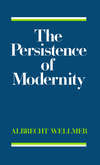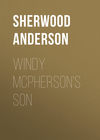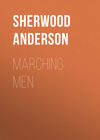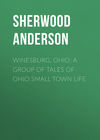Kitabı oku: «Triumph of the Egg, and Other Stories», sayfa 8
Following some obscure impulse the tired woman threw herself on her back and lay still with closed eyes. Her fright passed. It was warm and close in the room-like tunnels. The pain in her side went away. She opened her eyes and between the wide green corn blades could see patches of a black threatening sky. She did not want to be alarmed and so closed her eyes again. Her thin hand no longer gripped the tear in her dress and her little breasts were exposed. They expanded and contracted in spasmodic jerks. She threw her hands back over her head and lay still.
It seemed to Elsie that hours passed as she lay thus, quiet and passive under the corn. Deep within her there was a feeling that something was about to happen, something that would lift her out of herself, that would tear her away from her past and the past of her people. Her thoughts were not definite. She lay still and waited as she had waited for days and months by the rock at the back of the orchard on the Vermont farm when she was a girl. A deep grumbling noise went on in the sky overhead but the sky and everything she had ever known seemed very far away, no part of herself.
After a long silence, when it seemed to her that she had gone out of herself as in a dream, Elsie heard a man's voice calling. "Aho, aho, aho," shouted the voice and after another period of silence there arose answering voices and then the sound of bodies crashing through the corn and the excited chatter of children. A dog came running along the row where she lay and stood beside her. His cold nose touched her face and she sat up. The dog ran away. The Leander boys passed. She could see their bare legs flashing in and out across one of the tunnels. Her brother had become alarmed by the rapid approach of the thunder storm and wanted to get his family to town. His voice kept calling from the house and the voices of the children answered from the fields.
Elsie sat on the ground with her hands pressed together. An odd feeling of disappointment had possession of her. She arose and walked slowly along in the general direction taken by the children. She came to a fence and crawled over, tearing her dress in a new place. One of her stockings had become unloosed and had slipped down over her shoe top. The long sharp weeds had scratched her leg so that it was criss-crossed with red lines, but she was not conscious of any pain.
The distraught woman followed the children until she came within sight of her father's house and then stopped and again sat on the ground. There was another loud crash of thunder and Tom Leander's voice called again, this time half angrily. The name of the girl Elizabeth was shouted in loud masculine tones that rolled and echoed like the thunder along the aisles under the corn.
And then Elizabeth came into sight accompanied by the young ploughman. They stopped near Elsie and the man took the girl into his arms. At the sound of their approach Elsie had thrown herself face downward on the ground and had twisted herself into a position where she could see without being seen. When their lips met her tense hands grasped one of the corn stalks. Her lips pressed themselves into the dust. When they had gone on their way she raised her head. A dusty powder covered her lips.
What seemed another long period of silence fell over the fields. The murmuring voices of unborn children, her imagination had created in the whispering fields, became a vast shout. The wind blew harder and harder. The corn stalks were twisted and bent. Elizabeth went thoughtfully out of the field and climbing the fence confronted her father. "Where you been? What you been a doing?" he asked. "Don't you think we got to get out of here?"
When Elizabeth went toward the house Elsie followed, creeping on her hands and knees like a little animal, and when she had come within sight of the fence surrounding the house she sat on the ground and put her hands over her face. Something within herself was being twisted and whirled about as the tops of the corn stalks were now being twisted and whirled by the wind. She sat so that she did not look toward the house and when she opened her eyes she could again see along the long mysterious aisles.
Her brother with his wife and children went away. By turning her head Elsie could see them driving at a trot out of the yard back of her father's house. With the going of the younger woman the farm house in the midst of the cornfield rocked by the winds seemed the most desolate place in the world.
Her mother came out at the back door of the house. She ran to the steps where she knew her daughter was in the habit of sitting and then in alarm began to call. It did not occur to Elsie to answer. The voice of the older woman did not seem to have anything to do with herself. It was a thin voice and was quickly lost in the wind and in the crashing sound that arose out of the fields. With her head turned toward the house Elsie stared at her mother who ran wildly around the house and then went indoors. The back door of the house went shut with a bang.
The storm that had been threatening broke with a roar. Broad sheets of water swept over the cornfields. Sheets of water swept over the woman's body. The storm that had for years been gathering in her also broke. Sobs arose out of her throat. She abandoned herself to a storm of grief that was only partially grief. Tears ran out of her eyes and made little furrows through the dust on her face. In the lulls that occasionally came in the storm she raised her head and heard, through the tangled mass of wet hair that covered her ears and above the sound of millions of rain-drops that alighted on the earthen floor inside the house of the corn, the thin voices of her mother and father calling to her out of the Leander house.
WAR
The story came to me from a woman met on a train. The car was crowded and I took the seat beside her. There was a man in the offing who belonged with her—a slender girlish figure of a man in a heavy brown canvas coat such as teamsters wear in the winter. He moved up and down in the aisle of the car, wanting my place by the woman's side, but I did not know that at the time.
The woman had a heavy face and a thick nose. Something had happened to her. She had been struck a blow or had a fall. Nature could never have made a nose so broad and thick and ugly. She had talked to me in very good English. I suspect now that she was temporarily weary of the man in the brown canvas coat, that she had travelled with him for days, perhaps weeks, and was glad of the chance to spend a few hours in the company of some one else.
Everyone knows the feeling of a crowded train in the middle of the night. We ran along through western Iowa and eastern Nebraska. It had rained for days and the fields were flooded. In the clear night the moon came out and the scene outside the car-window was strange and in an odd way very beautiful.
You get the feeling: the black bare trees standing up in clusters as they do out in that country, the pools of water with the moon reflected and running quickly as it does when the train hurries along, the rattle of the car-trucks, the lights in isolated farm-houses, and occasionally the clustered lights of a town as the train rushed through it into the west.
The woman had just come out of war-ridden Poland, had got out of that stricken land with her lover by God knows what miracles of effort. She made me feel the war, that woman did, and she told me the tale that I want to tell you.
I do not remember the beginning of our talk, nor can I tell you of how the strangeness of my mood grew to match her mood until the story she told became a part of the mystery of the still night outside the car- window and very pregnant with meaning to me.
There was a company of Polish refugees moving along a road in Poland in charge of a German. The German was a man of perhaps fifty, with a beard. As I got him, he was much such a man as might be professor of foreign languages in a college in our country, say at Des Moines, Iowa, or Springfield, Ohio. He would be sturdy and strong of body and given to the eating of rather rank foods, as such men are. Also he would be a fellow of books and in his thinking inclined toward the ranker philosophies. He was dragged into the war because he was a German, and he had steeped his soul in the German philosophy of might. Faintly, I fancy, there was another notion in his head that kept bothering him, and so to serve his government with a whole heart he read books that would re-establish his feeling for the strong, terrible thing for which he fought. Because he was past fifty he was not on the battle line, but was in charge of the refugees, taking them out of their destroyed village to a camp near a railroad where they could be fed.
The refugees were peasants, all except the woman in the American train with me, her lover and her mother, an old woman of sixty-five. They had been small landowners and the others in their party had worked on their estate.
Along a country road in Poland went this party in charge of the German who tramped heavily along, urging them forward. He was brutal in his insistence, and the old woman of sixty-five, who was a kind of leader of the refugees, was almost equally brutal in her constant refusal to go forward. In the rainy night she stopped in the muddy road and her party gathered about her. Like a stubborn horse she shook her head and muttered Polish words. "I want to be let alone, that's what I want. All I want in the world is to be let alone," she said, over and over; and then the German came up and putting his hand on her back pushed her along, so that their progress through the dismal night was a constant repetition of the stopping, her muttered words, and his pushing. They hated each other with whole-hearted hatred, that old Polish woman and the German.
The party came to a clump of trees on the bank of a shallow stream and the German took hold of the old woman's arm and dragged her through the stream while the others followed. Over and over she said the words: "I want to be let alone. All I want in the world is to be let alone."
In the clump of trees the German started a fire. With incredible efficiency he had it blazing high in a few minutes, taking the matches and even some bits of dry wood from a little rubber-lined pouch carried in his inside coat pocket. Then he got out tobacco and, sitting down on the protruding root of a tree, smoked and stared at the refugees, clustered about the old woman on the opposite side of the fire.
The German went to sleep. That was what started his trouble. He slept for an hour and when he awoke the refugees were gone. You can imagine him jumping up and tramping heavily back through the shallow stream and along the muddy road to gather his party together again. He would be angry through and through, but he would not be alarmed. It was only a matter, he knew, of going far enough back along the road as one goes back along a road for strayed cattle.
And then, when the German came up to the party, he and the old woman began to fight. She stopped muttering the words about being let alone and sprang at him. One of her old hands gripped his beard and the other buried itself in the thick skin of his neck.
The struggle in the road lasted a long time. The German was tired and not as strong as he looked, and there was that faint thing in him that kept him from hitting the old woman with his fist. He took hold of her thin shoulders and pushed, and she pulled. The struggle was like a man trying to lift himself by his boot straps. The two fought and were full of the determination that will not stop fighting, but they were not very strong physically.
And so their two souls began to struggle. The woman in the train made me understand that quite clearly, although it may be difficult to get the sense of it over to you. I had the night and the mystery of the moving train to help me. It was a physical thing, the fight of the two souls in the dim light of the rainy night on that deserted muddy road. The air was full of the struggle and the refugees gathered about and stood shivering. They shivered with cold and weariness, of course, but also with something else. In the air everywhere about them they could feel the vague something going on. The woman said that she would gladly have given her life to have it stopped, or to have someone strike a light, and that her man felt the same way. It was like two winds struggling, she said, like a soft yielding cloud become hard and trying vainly to push another cloud out of the sky.
Then the struggle ended and the old woman and the German fell down exhausted in the road. The refugees gathered about and waited. They thought something more was going to happen, knew in fact something more would happen. The feeling they had persisted, you see, and they huddled together and perhaps whimpered a little.
What happened is the whole point of the story. The woman in the train explained it very clearly. She said that the two souls, after struggling, went back into the two bodies, but that the soul of the old woman went into the body of the German and the soul of the German into the body of the old woman.
After that, of course, everything was quite simple. The German sat down by the road and began shaking his head and saying he wanted to be let alone, declared that all he wanted in the world was to be let alone, and the Polish woman took papers out of his pocket and began driving her companions back along the road, driving them harshly and brutally along, and when they grew weary pushing them with her hands.
There was more of the story after that. The woman's lover, who had been a school-teacher, took the papers and got out of the country, taking his sweetheart with him. But my mind has forgotten the details. I only remember the German sitting by the road and muttering that he wanted to be let alone, and the old tired mother-in-Poland saying the harsh words and forcing her weary companions to march through the night back into their own country.
MOTHERHOOD
Below the hill there was a swamp in which cattails grew. The wind rustled the dry leaves of a walnut tree that grew on top of the hill.
She went beyond the tree to where the grass was long and matted. In the farmhouse a door bangs and in the road before the house a dog barked.
For a long time there was no sound. Then a wagon came jolting and bumping over the frozen road. The little noises ran along the ground to where she was lying on the grass and seemed like fingers playing over her body. A fragrance arose from her. It took a long time for the wagon to pass.
Then another sound broke the stillness. A young man from a neighboring farm came stealthily across a field and climbed a fence. He also came to the hill but for a time did not see her lying almost at his feet. He looked toward the house and stood with hands in pockets, stamping on the frozen ground like a horse.
Then he knew she was there. The aroma of her crept into his consciousness.
He ran to kneel beside her silent figure. Everything was different than it had been when they crept to the hill on the other evenings. The time of talking and waiting was over. She was different. He grew bold and put his hands on her face, her neck, her breasts, her hips. There was a strange new firmness and hardness to her body. When he kissed her lips she did not move and for a moment he was afraid. Then courage came and he went down to lie with her.
He had been a farm boy all his life and had plowed many acres of rich black land.
He became sure of himself.
He plowed her deeply.
He planted the seeds of a son in the warm rich quivering soil.
* * * * *
She carried the seeds of a son within herself. On winter evenings she went along a path at the foot of a small hill and turned up the hill to a barn where she milked cows. She was large and strong. Her legs went swinging along. The son within her went swinging along.
He learned the rhythm of little hills.
He learned the rhythm of flat places.
He learned the rhythm of legs walking.
He learned the rhythm of firm strong hands pulling at the teats of cows.
* * * * *
There was a field that was barren and filled with stones. In the spring when the warm nights came and when she was big with him she went to the fields. The heads of little stones stuck out of the ground like the heads of buried children. The field, washed with moonlight, sloped gradually downward to a murmuring brook. A few sheep went among the stones nibbling the sparse grass.
A thousand children were buried in the barren field. They struggled to come out of the ground. They struggled to come to her. The brook ran over stones and its voice cried out. For a long time she stayed in the field, shaken with sorrow.
She arose from her seat on a large stone and went to the farmhouse. The voices of the darkness cried to her as she went along a lane and past a silent barn.
Within herself only the one child struggled. When she got into bed his heels beat upon the walls of his prison. She lay still and listened. Only one small voice seemed coming to her out of the silence of the night.
OUT OF NOWHERE INTO NOTHING
I
Rosalind Wescott, a tall strong looking woman of twenty-seven, was walking on the railroad track near the town of Willow Springs, Iowa. It was about four in the afternoon of a day in August, and the third day since she had come home to her native town from Chicago, where she was employed.
At that time Willow Springs was a town of about three thousand people. It has grown since. There was a public square with the town hall in the centre and about the four sides of the square and facing it were the merchandising establishments. The public square was bare and grassless, and out of it ran streets of frame houses, long straight streets that finally became country roads running away into the flat prairie country.
Although she had told everyone that she had merely come home for a short visit because she was a little homesick, and although she wanted in particular to have a talk with her mother in regard to a certain matter, Rosalind had been unable to talk with anyone. Indeed she had found it difficult to stay in the house with her mother and father and all the time, day and night, she was haunted by a desire to get out of town. As she went along the railroad tracks in the hot afternoon sunshine she kept scolding herself. "I've grown moody and no good. If I want to do it why don't I just go ahead and not make a fuss," she thought.
For two miles the railroad tracks, eastward out of Willow Springs, went through corn fields on a flat plain. Then there was a little dip in the land and a bridge over Willow Creek. The Creek was altogether dry now but trees grew along the edge of the grey streak of cracked mud that in the fall, winter and spring would be the bed of the stream. Rosalind left the tracks and went to sit under one of the trees. Her cheeks were flushed and her forehead wet. When she took off her hat her hair fell down in disorder and strands of it clung to her hot wet face. She sat in what seemed a kind of great bowl on the sides of which the corn grew rank. Before her and following the bed of the stream there was a dusty path along which cows came at evening from distant pastures. A great pancake formed of cow dung lay nearby. It was covered with grey dust and over it crawled shiny black beetles. They were rolling the dung into balls in preparation for the germination of a new generation of beetles.
Rosalind had come on the visit to her home town at a time of the year when everyone wished to escape from the hot dusty place. No one had expected her and she had not written to announce her coming. One hot morning in Chicago she had got out of bed and had suddenly begun packing her bag, and on that same evening there she was in Willow Springs, in the house where she had lived until her twenty-first year, among her own people. She had come up from the station in the hotel bus and had walked into the Wescott house unannounced. Her father was at the pump by the kitchen door and her mother came into the living room to greet her wearing a soiled kitchen apron. Everything in the house was just as it always had been. "I just thought I would come home for a few days," she said, putting down her bag and kissing her mother.
Ma and Pa Wescott had been glad to see their daughter. On the evening of her arrival they were excited and a special supper was prepared. After supper Pa Wescott went up town as usual, but he stayed only a few minutes. "I just want to run to the postoffice and get the evening paper," he said apologetically. Rosalind's mother put on a clean dress and they all sat in the darkness on the front porch. There was talk, of a kind. "Is it hot in Chicago now? I'm going to do a good deal of canning this fall. I thought later I would send you a box of canned fruit. Do you live in the same place on the North Side? It must be nice in the evening to be able to walk down to the park by the lake."
* * * * *
Rosalind sat under the tree near the railroad bridge two miles from Willow Springs and watched the tumble bugs at work. Her whole body was hot from the walk in the sun and the thin dress she wore clung to her legs. It was being soiled by the dust on the grass under the tree.
She had run away from town and from her mother's house. All during the three days of her visit she had been doing that. She did not go from house to house to visit her old schoolgirl friends, the girls who unlike herself had stayed in Willow Springs, had got married and settled down there. When she saw one of these women on the street in the morning, pushing a baby carriage and perhaps followed by a small child, she stopped. There was a few minutes of talk. "It's hot. Do you live in the same place in Chicago? My husband and I hope to take the children and go away for a week or two. It must be nice in Chicago where you are so near the lake." Rosalind hurried away.
All the hours of her visit to her mother and to her home town had been spent in an effort to hurry away.
From what? Rosalind defended herself. There was something she had come from Chicago hoping to be able to say to her mother. Did she really want to talk with her about things? Had she thought, by again breathing the air of her home town, to get strength to face life and its difficulties?
There was no point in her taking the hot uncomfortable trip from Chicago only to spend her days walking in dusty country roads or between rows of cornfields in the stifling heat along the railroad tracks.
"I must have hoped. There is a hope that cannot be fulfilled," she thought vaguely.
Willow Springs was a rather meaningless, dreary town, one of thousands of such towns in Indiana, Illinois, Wisconsin, Kansas, Iowa, but her mind made it more dreary.
She sat under the tree by the dry bed of Willow Creek thinking of the street in town where her mother and father lived, where she had lived until she had become a woman. It was only because of a series of circumstances she did not live there now. Her one brother, ten years older than herself, had married and moved to Chicago. He had asked her to come for a visit and after she got to the city she stayed. Her brother was a traveling salesman and spent a good deal of time away from home. "Why don't you stay here with Bess and learn stenography," he asked. "If you don't want to use it you don't have to. Dad can look out for you all right. I just thought you might like to learn."
* * * * *
"That was six years ago," Rosalind thought wearily. "I've been a city woman for six years." Her mind hopped about. Thoughts came and went. In the city, after she became a stenographer, something for a time awakened her. She wanted to be an actress and went in the evening to a dramatic school. In an office where she worked there was a young man, a clerk. They went out together, to the theatre or to walk in the park in the evening. They kissed.
Her thoughts came sharply back to her mother and father, to her home in Willow Springs, to the street in which she had lived until her twenty- first year.
It was but an end of a street. From the windows at the front of her mother's house six other houses could be seen. How well she knew the street and the people in the houses! Did she know them? From her eighteenth and until her twenty-first year she had stayed at home, helping her mother with the housework, waiting for something. Other young women in town waited just as she did. They like herself had graduated from the town high school and their parents had no intention of sending them away to college. There was nothing to do but wait. Some of the young women—their mothers and their mothers' friends still spoke of them as girls—had young men friends who came to see them on Sunday and perhaps also on Wednesday or Thursday evenings. Others joined the church, went to prayer meetings, became active members of some church organization. They fussed about.
Rosalind had done none of these things. All through those three trying years in Willow Springs she had just waited. In the morning there was the work to do in the house and then, in some way, the day wore itself away. In the evening her father went up town and she sat with her mother. Nothing much was said. After she had gone to bed she lay awake, strangely nervous, eager for something to happen that never would happen. The noises of the Wescott house cut across her thoughts. What things went through her mind!
There was a procession of people always going away from her. Sometimes she lay on her belly at the edge of a ravine. Well it was not a ravine. It had two walls of marble and on the marble face of the walls strange figures were carved. Broad steps led down—always down and away. People walked along the steps, between the marble walls, going down and away from her.
What people! Who were they? Where did they come from? Where were they going? She was not asleep but wide awake. Her bedroom was dark. The walls and ceiling of the room receded. She seemed to hang suspended in space, above the ravine—the ravine with walls of white marble over which strange beautiful lights played.
The people who went down the broad steps and away into infinite distance—they were men and women. Sometime a young girl like herself but in some way sweeter and purer than herself, passed alone. The young girl walked with a swinging stride, going swiftly and freely like a beautiful young animal. Her legs and arms were like the slender top branches of trees swaying in a gentle wind. She also went down and away.
Others followed along the marble steps. Young boys walked alone. A dignified old man followed by a sweet faced woman passed. What a remarkable man! One felt infinite power in his old frame. There were deep wrinkles in his face and his eyes were sad. One felt he knew everything about life but had kept something very precious alive in himself. It was that precious thing that made the eyes of the woman who followed him burn with a strange fire. They also went down along the steps and away.
Down and away along the steps went others—how many others, men and women, boys and girls, single old men, old women who leaned on sticks and hobbled along.
In the bed in her father's house as she lay awake Rosalind's head grew light. She tried to clutch at something, understand something.
She couldn't. The noises of the house cut across her waking dream. Her father was at the pump by the kitchen door. He was pumping a pail of water. In a moment he would bring it into the house and put it on a box by the kitchen sink. A little of the water would slop over on the floor. There would be a sound like a child's bare foot striking the floor. Then her father would go to wind the clock. The day was done. Presently there would be the sound of his heavy feet on the floor of the bedroom above and he would get into bed to lie beside Rosalind's mother.
The night noises of her father's house had been in some way terrible to the girl in the years when she was becoming a woman. After chance had taken her to the city she never wanted to think of them again. Even in Chicago where the silence of nights was cut and slashed by a thousand noises, by automobiles whirling through the streets, by the belated footsteps of men homeward bound along the cement sidewalks after midnight, by the shouts of quarreling men drunk on summer nights, even in the great hubbub of noises there was comparative quiet. The insistent clanging noises of the city nights were not like the homely insistent noises of her father's house. Certain terrible truths about life did not abide in them, they did not cling so closely to life and did not frighten as did the noises in the one house on the quiet street in the town of Willow Springs. How often, there in the city, in the midst of the great noises she had fought to escape the little noises! Her father's feet were on the steps leading into the kitchen. Now he was putting the pail of water on the box by the kitchen sink. Upstairs her mother's body fell heavily into bed. The visions of the great marble-lined ravine down along which went the beautiful people flew away. There was the little slap of water on the kitchen floor. It was like a child's bare foot striking the floor. Rosalind wanted to cry out. Her father closed the kitchen door. Now he was winding the clock. In a moment his feet would be on the stairs—
There were six houses to be seen from the windows of the Wescott house. In the winter smoke from six brick chimneys went up into the sky. There was one house, the next one to the Wescott's place, a small frame affair, in which lived a man who was thirty-five years old when Rosalind became a woman of twenty-one and went away to the city. The man was unmarried and his mother, who had been his housekeeper, had died during the year in which Rosalind graduated from the high school. After that the man lived alone. He took his dinner and supper at the hotel, down town on the square, but he got his own breakfast, made his own bed and swept out his own house. Sometimes he walked slowly along the street past the Wescott house when Rosalind sat alone on the front porch. He raised his hat and spoke to her. Their eyes met. He had a long, hawk-like nose and his hair was long and uncombed.















